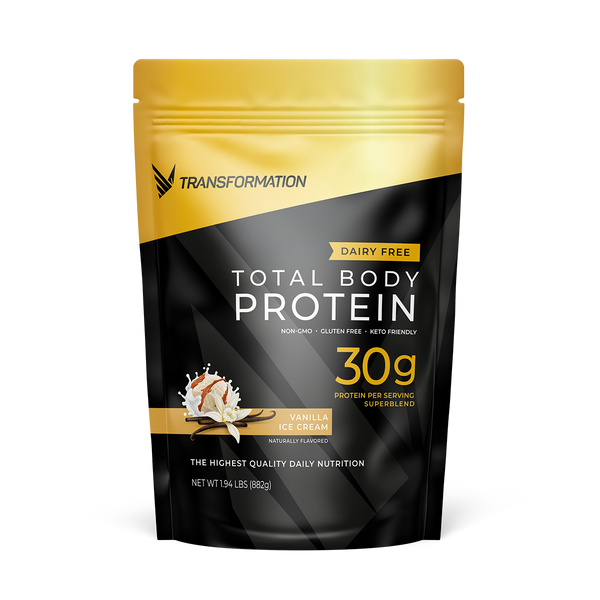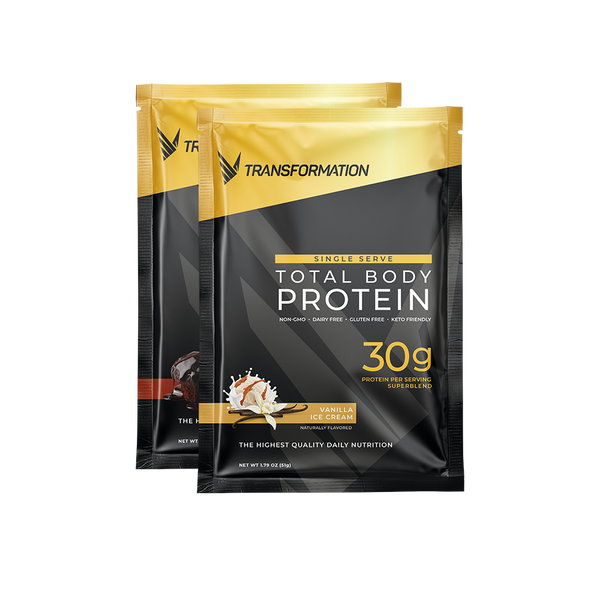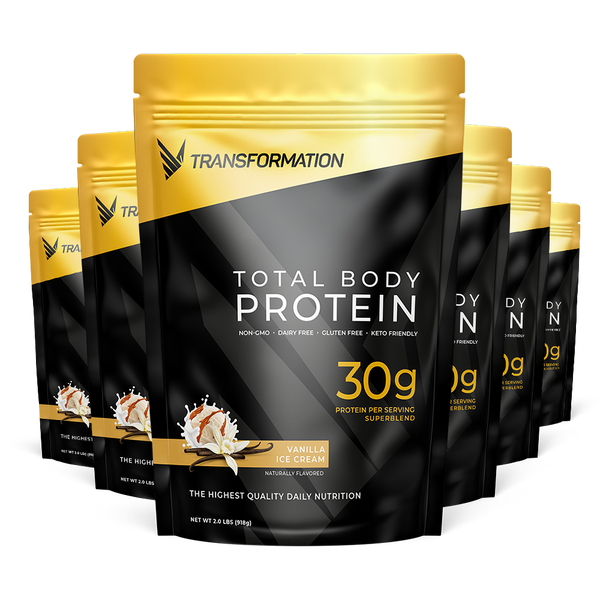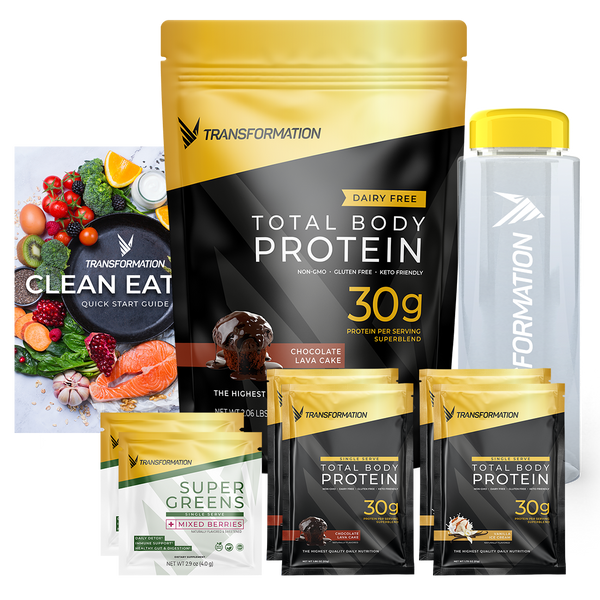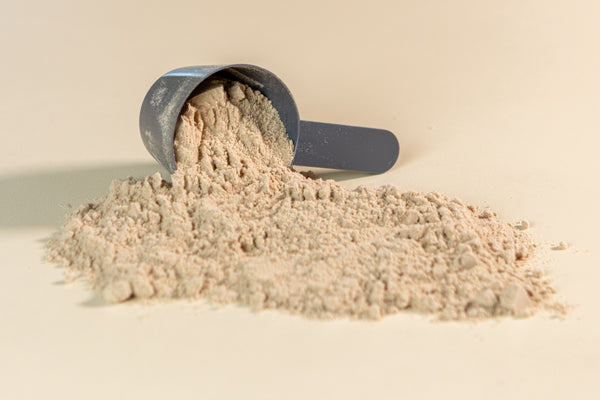
Is Collagen a Complete Protein? – The Missing Piece in Your Protein Puzzle
We know that complete proteins play a vital role in our health. They contain all nine essential amino acids that our bodies need but can't produce on their own.
We need those amino acids to repair our muscles, support our immune system, and stay healthy.
Collagen protein has been making waves for its beauty and wellness benefits, and it is for a good reason. From radiant skin to resilient joints, this protein boasts impressive benefits that make us wonder if it's also a viable option as a protein supplement.
In this post, we'll explore how collagen protein affects our health and if it can replace or go well with other proteins.
Understanding complete proteins
Not all proteins are complete. So, what exactly is a complete protein, and why is it so crucial for our well-being?
Complete proteins, as we mentioned before, pack all nine essential amino acids that our bodies cannot produce on their own. So we have to get them through our diet.
These amino acids support important bodily functions, from muscle repair to hormone production.
Let's take a closer look at these nine essential amino acids and their roles:
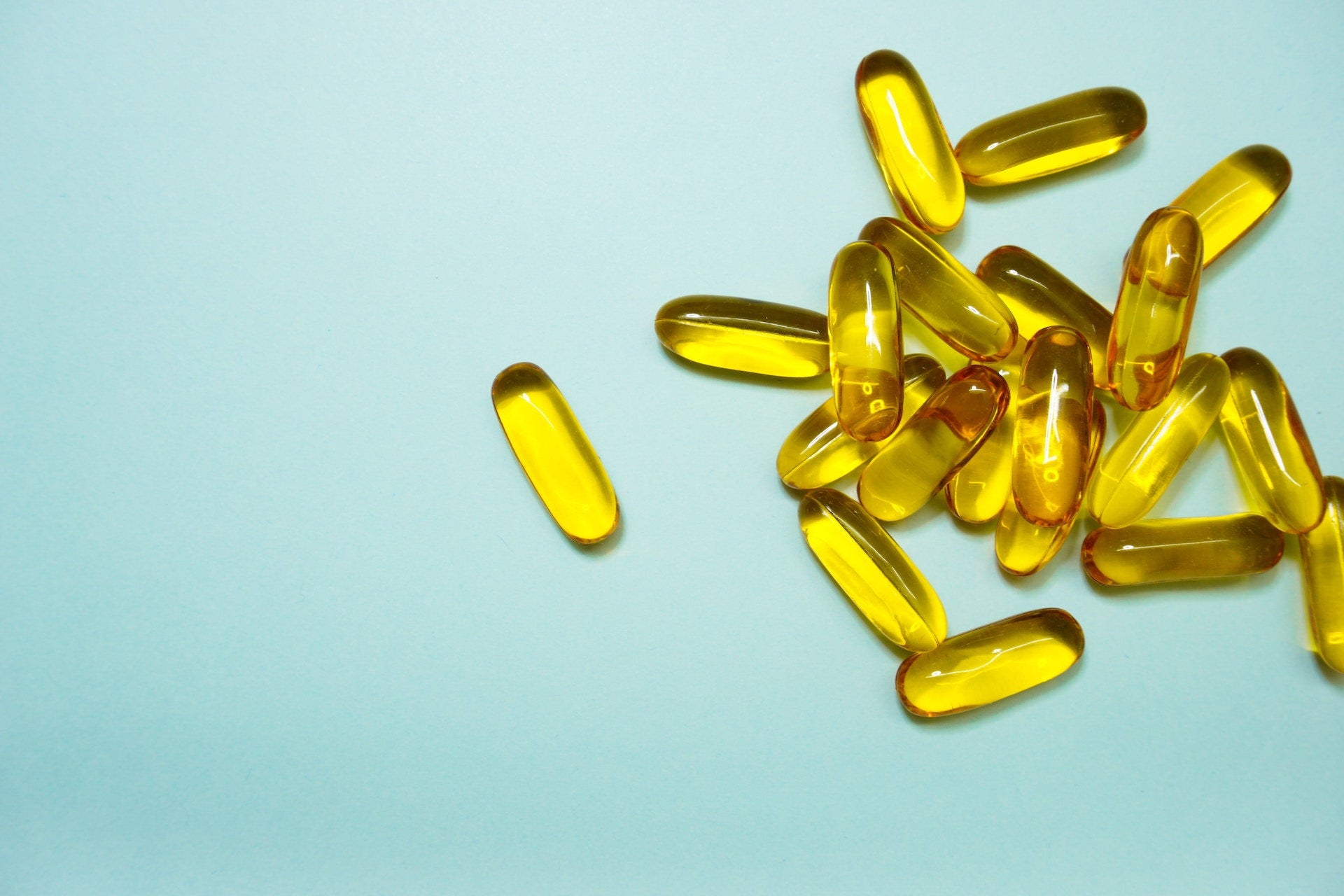
Histidine: Essential for the growth and repair of tissues
Isoleucine: Involved in muscle metabolism and immune function
Leucine: Critical for muscle protein synthesis and growth
Lysine: Important for collagen production, calcium absorption, and energy production
Methionine: Supports detoxification processes and healthy skin, hair, and nails
Phenylalanine: Serves as a precursor to important neurotransmitters like dopamine
Threonine: Supports the immune system and digestive function
Tryptophan: Helps the body make serotonin, a chemical that regulates mood and sleep
Valine: Important for muscle metabolism, tissue repair, and energy production
We can't stress enough how important complete proteins are for our well-being.
The list is quite long. It includes helping muscles grow, supporting the immune system, regulating hormones, and oxygenating the blood.
They are found in animal-based sources like meat, poultry, and fish.
Incomplete proteins lack one or more essential amino acids. This is often the case with plant-based sources such as beans, grains, and nuts.
While these proteins offer various health benefits, they may need to be combined to ensure you get all the essential amino acids your body requires.
Where do collagen proteins fit in?
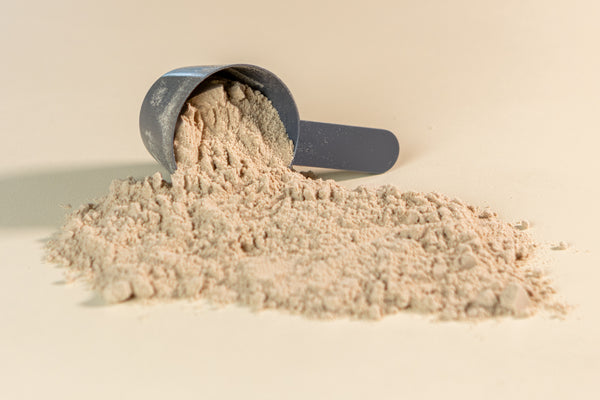
Circling back to collagen.
It has become a popular choice in the world of protein supplements. But is collagen a complete protein?
The answer is no. It is a protein alright, but it doesn't quite fit as a complete protein.
Collagen has the important amino acids found in complete proteins, like glycine, proline, and hydroxyproline. But, it lacks one essential– tryptophan. This makes it an incomplete protein.
Tryptophan is an essential amino acid with a wide range of functions in our body. It serves as a precursor to serotonin, a neurotransmitter that regulates mood and promotes a sense of well-being.
Tryptophan also serves as a precursor for niacin (vitamin B3), an essential part of our energy metabolism and skin health.
So, if collagen is missing tryptophan, where can you find this important amino acid in your diet?
To make sure you're getting enough tryptophan, try adding foods such as poultry, eggs, dairy products, soybeans, nuts and seeds, and even chocolate into your diet.
Making collagen a complete protein
The key to a balanced diet is diversity. By understanding each protein source, you can create a balanced and effective nutrition plan.
Widening your plate a little bit will allow you to benefit from collagen proteins while not compromising your essential amino acid intake.
Collagen and completing the amino acid puzzle
As we mentioned, collagen lacks one essential amino acid—tryptophan. So, how can you make up for the gap left by collagen and not miss out on complete proteins?
The answer lies in strategic dietary choices. Here are some of our suggestions:
Pair collagen with complementary proteins
Mixing collagen with other protein sources can help you balance your amino acid intake. Lean meats, poultry, fish, eggs, and dairy are all great options as they pack a lot of complete protein.
If you're a vegetarian or vegan, the easiest way is to combine collagen with plant-based proteins. Legumes, nuts, seeds, and grains each bring their own amino acid profiles to the table.
Supplement with amino acids
For those who want to fine-tune their amino acid intake, amino acid supplements are readily available. You can take tryptophan supplements to bridge the gap left by collagen, creating a more complete protein profile.
Just don't forget to consult a healthcare professional before taking any new supplements.
Benefits of completing collagen with complementary proteins
Combining collagen with complementary proteins unlocks many benefits like boosting your immune system. Most importantly your muscles get what they need to heal and grow.
Collagen is important for your bones and joints. Completing it with other proteins will also help you maintain a well-functioning musculoskeletal system.
This way, you can still enjoy the beauty-enhancing effects of collagen and the muscle-building properties of complete proteins.
Can collagen protein replace regular protein?
Though collagen offers unique health benefits, relying on it as your primary protein source or substituting it for a regular protein supplement won't fulfill your metabolic requirements. This could cause imbalances in amino acids and affect your cellular functions.
Think of collagen as the piece that completes the health and fitness puzzle. When combined with a well-balanced diet rich in complete proteins, collagen protein powder can have incredible effects on your fitness and well-being.
If you wish to support your muscle growth with healthy skin, hair, and nails, collagen can be a fantastic addition.
So, the verdict is clear – collagen can't replace your primary protein sources because it barely misses being a complete protein as it lacks the essential amino acid tryptophan.
Navigating the world of collagen protein supplements

Collagen comes in various forms and sources to choose from, making it accessible and versatile for everyone. For instance, people often choose collagen peptides because they can easily mix them with drinks and add them to a variety of recipes.
Collagen capsules and tablets are also a convenient way to incorporate collagen into your diet.
For those who prefer a tasty twist, collagen gummies are a sweet option. If you're looking to add collagen proteins into your daily routine, try collagen-infused foods and drinks.
Ranging from protein bars to coffee creamers, all offer a delicious way to add collagen to your diet.
When you're in the market for collagen supplements, here are some tips to help you choose wisely
Check the label for the amino acid profile
While collagen is not a complete protein, it contains a rich array of specific amino acids that provide unique benefits for your skin, joints, and connective tissues.
Be aware of the source of your collagen
Bovine (cow), marine (fish), and chicken are common sources. Consider your dietary preferences and any potential allergies when making a choice.
Remember, source matters.
Look for hydrolyzed collagen or collagen peptides
These forms are easier for your body to absorb, so you get the most benefit.
Focus on quality and purity
Seek out supplements from reputable brands that prioritize quality and purity. Look for third-party testing to confirm the product's integrity.
Check for extra ingredients
Some collagen supplements may include added vitamins, minerals, or other beneficial compounds. Assess whether these align with your health goals.
Consult a healthcare professional
Before beginning any supplement regimen, it's a good idea to talk to a healthcare professional even if you don't have any health concerns or special dietary needs. They can provide personalized recommendations.
Let’s put it all together
Proteins come in many forms, each offering a unique set of benefits. When it comes to complete proteins, balance is the key.
A well-rounded diet that incorporates both complete and incomplete proteins will give your body all the essential amino acids it needs.
While not a complete protein itself, collagen protein has its own perks. When you combine it with complete proteins or complementary amino acids, it can be a great addition to your diet.
Whether you're opting for complete proteins or exploring the world of collagen supplements, remember that essential amino acids are irreplaceable for a healthy body. And knowing the source of each amino acid will guide your choices for supplements.
There are hundreds of options available, all have their own advantages. You can mix and match different compositions to get the variety you need in your supplements.
However, not all protein supplements are created equal. In this case, for those who are looking for a more well-rounded option, a superblend like our Total Body Protein is a good place to start.
We hope this post helped you learn about collagen proteins and how they compare to complete proteins.
If you have any questions you can reach us at support@transformationprotein.com.


